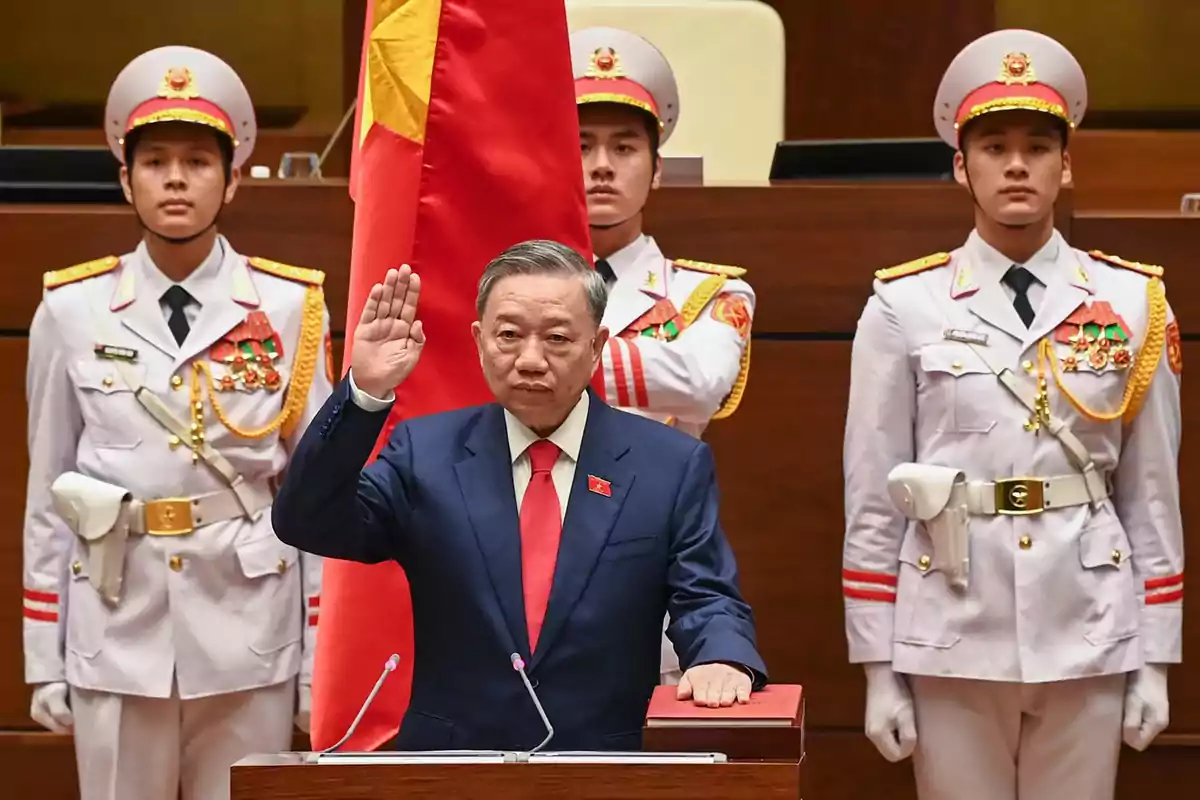
The Communist Party of Vietnam will lay off nearly 80,000 public employees
The goal of the communist regime is to reduce the state apparatus and significantly lower public spending
Vietnam's National Assembly recently approved an ambitious liberal project, similar to Javier Milei's in Argentina, for State reform that includes the merger of provinces and cities, which will mean the elimination of nearly 80,000 public sector jobs.
This initiative is part of a far-reaching restructuring driven by the Communist Party of Vietnam, with the goal of reducing the state apparatus and significantly lowering public spending.
With this measure, the number of provincial and municipal administrations will be reduced from 63 to just 34, an unprecedented transformation that will directly impact the country's territorial and political structure.

The communist regime considers this reconfiguration essential to improving state efficiency and ensuring sustainable long-term economic development.
This decision adds to a previous adjustment made in February, when Vietnamese authorities reduced the number of ministries and government agencies from 30 to 22, which had already led to the elimination of approximately 23,000 public jobs. Now, with this new stage of reforms, the total number of affected officials rises to more than 100,000.
The General Secretary of the Communist Party of Vietnam and the country's main political figure, To Lam, stated that this deep reform is indispensable if a more dynamic, effective model of governance oriented toward the well-being of the citizenry is sought. According to Lam, the goal is to move from a traditional, more bureaucratic state approach to one in which the smaller state acts actively in service of the people.

The Minister of the Interior, Pham Thi Thanh Tra, declared that this reorganization constitutes "the greatest revolution since the country's founding." Tra reported that a total of 79,339 public employees will have to leave their positions, either through layoffs, voluntary resignations, or early retirements.
The new administrative scheme will come into effect starting in July. The new local authorities will be appointed on June 30, and the reorganized units are expected to begin operating fully from the first days of the following month.
Additionally, the National Assembly plans to soon vote on a constitutional amendment that will modify the country's administrative structure, moving from three levels (province, district, and commune) to two, eliminating the intermediate district level and expanding the role of communes.
More posts: